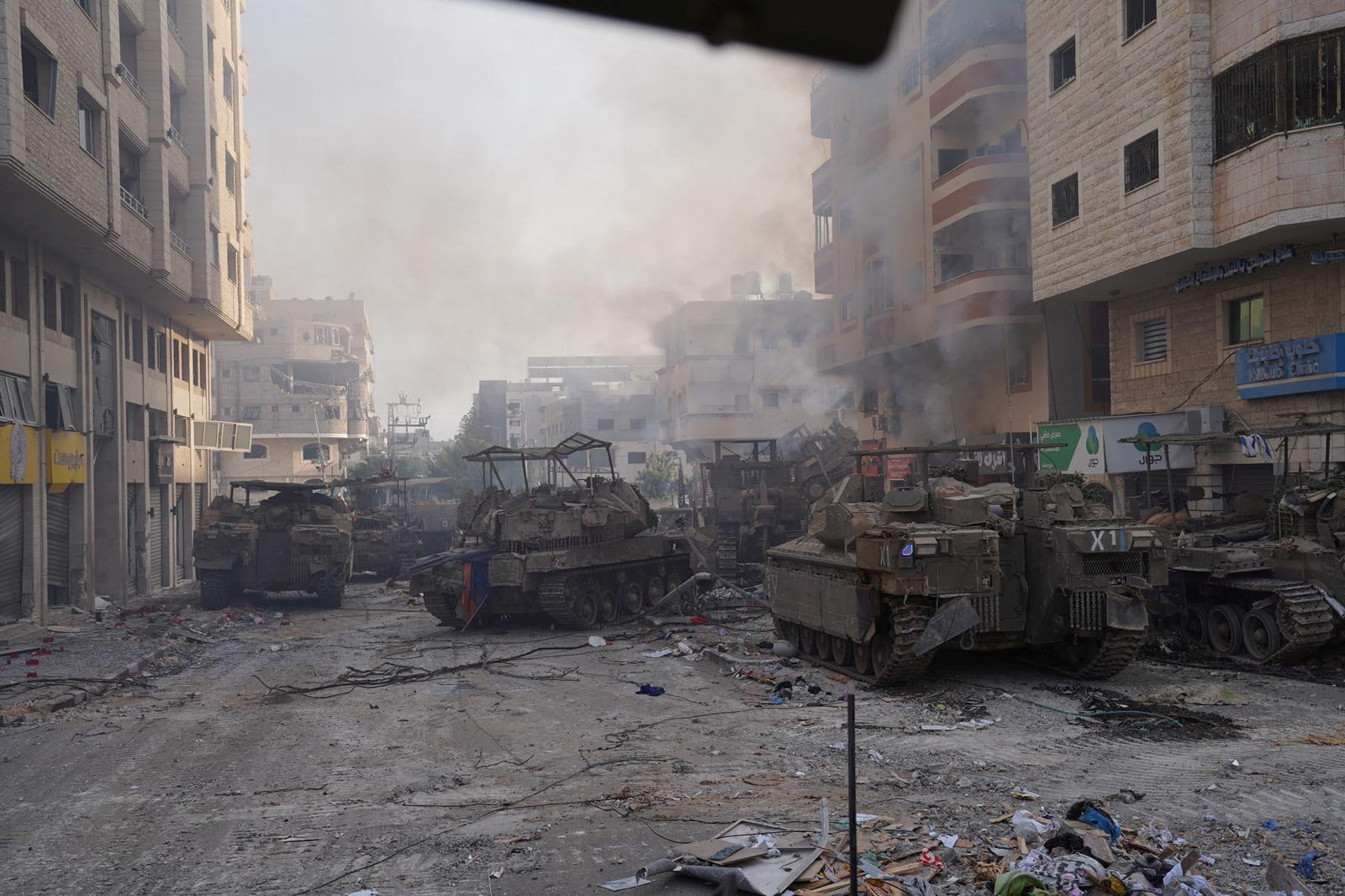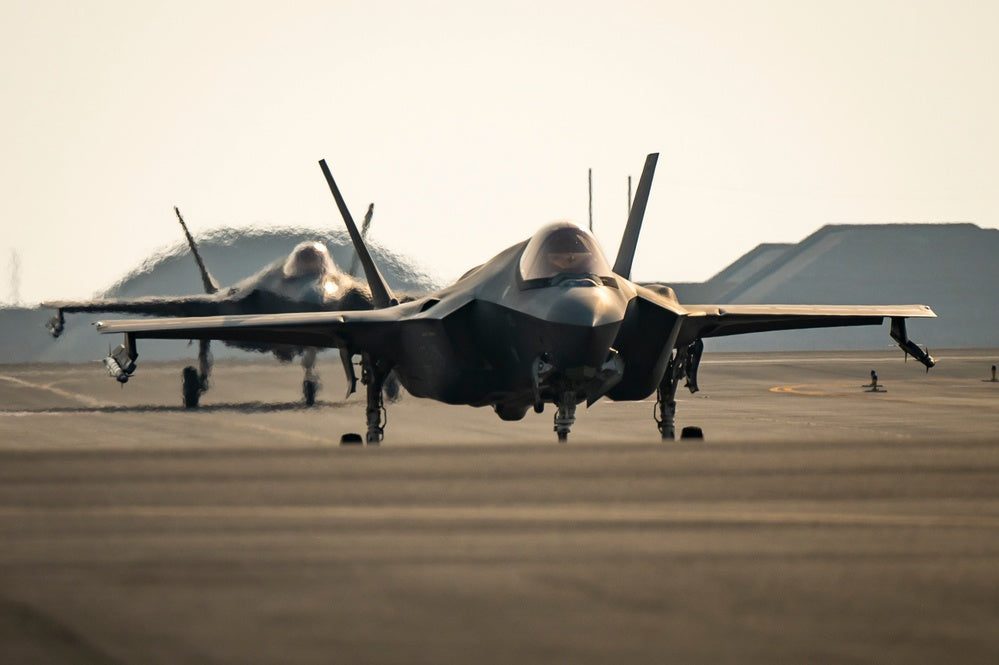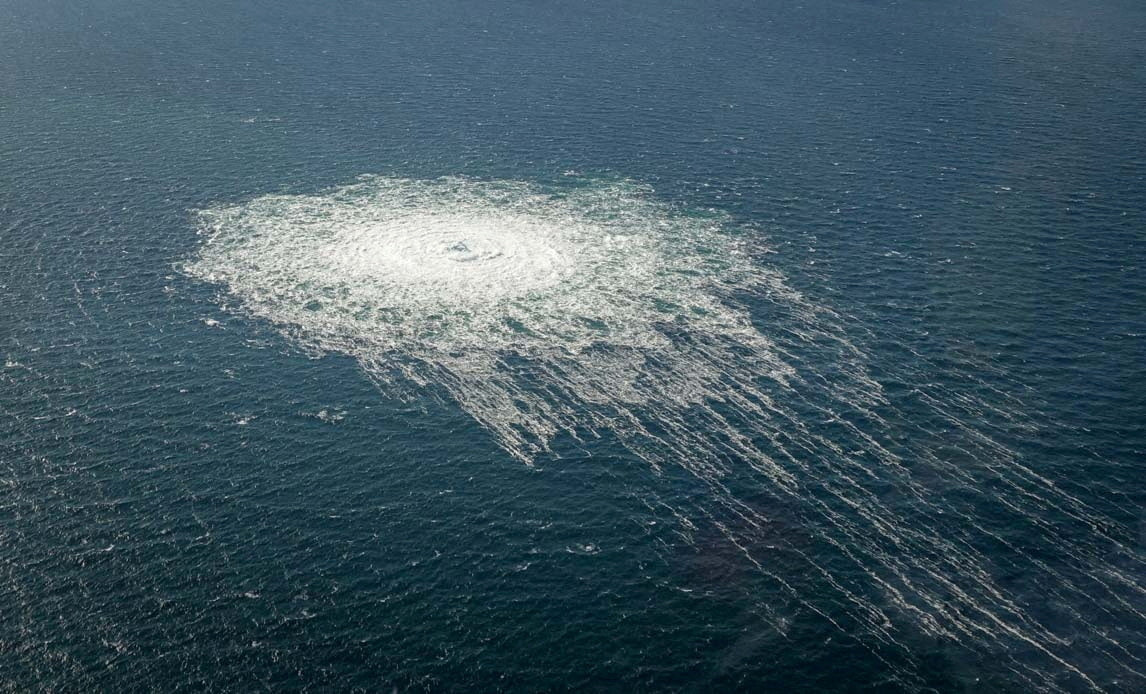
Israeli tanks at gates of main Gaza hospital, patients trapped in “circle of death”
PHOTO CAPTION: Israeli military vehicles manoeuvre during the ongoing ground operation of the Israeli army against Palestinian Islamist group Hamas, in the Gaza Strip as seen in a handout picture released by the Israel Defense Forces on November 13, 2023. Israel Defense Forces/Handout via REUTERS
By Nidal al-Mughrabi and Dan Williams
GAZA/JERUSALEM (Reuters) -Israeli forces reached the gates of Gaza City's main hospital on Monday, the primary target in their battle to seize control of the northern half of the Gaza Strip, where medics said patients including newborn babies were dying for lack of fuel.
Gaza health ministry spokesperson Ashraf Al-Qidra, who was inside Al Shifa hospital, said 32 patients had died in the past three days, including three newborn babies, as a result of the siege of the hospital and the cut-off of its power.
At least 650 patients were still inside, desperate to be evacuated to another medical facility by the Red Cross or some other neutral agency. Israel says the hospital sits atop tunnels housing a headquarters for Hamas fighters, who are to blame for its plight for using patients as shields, which Hamas denies.
“The tanks are in front of the hospital. We are under full blockade. It’s a totally civilian area. Only hospital facility, hospital patients, doctors and other civilians staying in the hospital. Someone should stop this," a surgeon at the hospital, Dr Ahmed El Mokhallalati, said by telephone.
"They bombed the (water) tanks, they bombed the water wells, they bombed the oxygen pump as well. They bombed everything in the hospital. So we are hardly surviving. We tell everyone, the hospital is no more a safe place for treating patients. We are harming patients by keeping them here."
There was also fresh concern that the war could spread beyond Gaza, with an upsurge of clashes on Israel's northern border with Lebanon, and the United States launching air strikes on Iran-linked militia targets in neighbouring Syria.
Israel launched its campaign last month to annihilate Hamas, the militant group which runs the Gaza Strip, after Hamas fighters rampaged through southern Israel killing civilians. Around 1,200 people died and 240 were dragged to Gaza as hostages according to Israel's tally, in the deadliest day in its 75-year history.
Since then thousands of Gazans have been killed and more than half of the population made homeless by a relentless Israeli military campaign. Israel has ordered the total evacuation of the northern half of Gaza. Gaza medical authorities say more than 11,000 people have been confirmed killed, around 40% of them children.
Since Israeli ground forces entered Gaza in late October and quickly surrounded Gaza City, fighting has been concentrated in a tightening circle around Al Shifa, the enclave's biggest hospital.
Gaza health ministry spokesperson Qidra said an Israel tank was now stationed at the hospital gate. Israeli snipers and drones were firing into the hospital, making it impossible for medics and patients to move around.
"We are besieged and are inside a circle of death," he said.
Israel has told civilians to leave and medics to send patients elsewhere. It says it has attempted to evacuate babies from the neo-natal ward and left 300 litres of fuel to power emergency generators at the hospital entrance, but the offers were blocked by Hamas.
Qidra said the 300 litres would power the hospital for just half an hour, and Shifa needed 8,000-10,000 litres of fuel per day delivered by the Red Cross or an international agency. An Israeli official who requested anonymity said 300 litres could last several hours because only the emergency room was running.
Dr El Mokhallalati, the surgeon, said premature babies that would normally be in individual incubators were being lined up eight to a bed, kept warm with whatever power was left.
After three died there were 36 alive in the neo-natal unit, he said. "We are expecting to lose more of them day by day."
A second major hospital in northern Gaza, al-Quds, has also stopped functioning. The Palestinian Red Crescent said it was surrounded by heavy gunfire, and a convoy of Red Cross vehicles sent to evacuate patients and staff had been unable to reach it.
U.N. agencies observed a minute's silence on Monday for 101 staff members killed so far, the largest toll of humanitarian workers in any war since the U.N. was founded in the ashes of World War Two. The United Nations has run a huge operation for generations in Gaza, where most residents are refugees.
POLARISED WORLD
The more than month-long conflict has polarised the world, with many countries saying that even the shocking brutality of the Hamas attacks did not justify an Israeli response that has killed so many civilians in a crowded territory under siege.
Israel says it must destroy Hamas, and the blame for harm to civilians falls on fighters who hide among them. It has rejected demands for a ceasefire, which it says would only prolong the suffering by giving Hamas a chance to regroup. Washington backs that position though it says it is nevertheless pressing its ally to protect civilians.
"The United States does not want to see firefights in hospitals where innocent people, patients receiving medical care, are caught in the crossfire and we've had active consultations with the Israeli Defence Forces on this," White House National Security Adviser Jake Sullivan told CBS News.
Hundreds of thousands of civilians are believed to remain in the northern part of Gaza despite Israel's order to leave. Israel has also regularly bombed the south. Health officials said at least 14 people were killed in two separate strikes in the main southern Gaza city, Khan Younis. At Nasser Hospital, people in private cars brought in casualties including children.
"There are dead bodies under the rubble, we need ambulances," one of the men cried.
The conflict has raised fears of a broader conflagration. Lebanon-based Hezbollah, which like Hamas is backed by Iran, has traded missile attacks with Israel. Other Iran-backed groups in Iraq and Syria have launched at least 40 drone and rocket attacks on U.S. forces.
The United States carried out two air strikes in Syria against Iran-aligned groups on Sunday, a U.S. defense official said.
(Reporting by Nidal al-Mughrabi in Gaza, Dan Williams in Jerusalem, and Reuters bureauxWriting by Peter GraffEditing by Nick Macfie)









